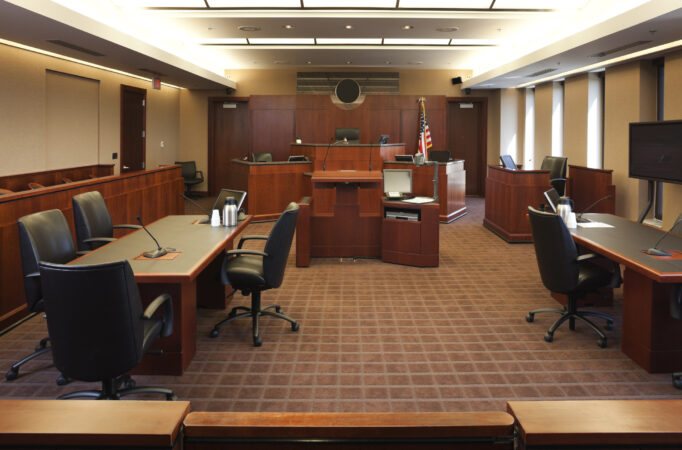Litigation
A Quick Look into the Statutory Employer Defense
In a recent case filed in the US District Court for the Middle District of PA, a general contractor and subcontractor agreed to pay $1.2 million to settle claims after a worker fell at a construction site. In short, the plaintiff fell while walking across a 17 foot high wall on a construction site on the Misericordia University campus in Luzerne County, suffering serious injuries to his ankles and feet.
In Markowski v. Sordoni Construction Services, No. 3:2013cv02255 (M.D. Pa. filed August 28, 2013), Sordoni Construction, general contractor, subcontracted a portion of the job to Rise Construction. Plaintiff Markowski alleged that both the general and subcontractor had a duty to ensure that the jobsite was safe; however, it was the plaintiff’s contention that the general contractor maintained the ultimate responsibility for this injuries. Prior to settlement, the general contractor maintained that it was immune from suit based upon the statutory employer doctrine.
In PA, a general contractor who subcontracts all or part of a contract may be immune from tort liability resulting from injuries sustained by the subcontractor’s employees where the general contractor is deemed to be the injured worker’s “statutory employer.” 77 P.S. § 461. This is referred to as the Statutory Employer Doctrine. The Doctrine provides:
A contractor who subcontracts all or any part of a contract and his insurer shall be liable for the payment of compensation to the employees of the subcontractor unless the subcontractor primarily liable for the payment of such compensation has secured its payment as provided for in this act. Any contractor or his insurer who shall become liable hereunder for such compensation may recover the amount thereof paid and any necessary expenses from the subcontractor primarily liable therefor.
To determine whether a contractor fits the definition of a “statutory employer,” Pennsylvania courts have held that the following elements must be demonstrated:
- A contractor who subcontracts all or any part of the contract;
- An employee of the subcontractor; and
- The contract must apply to work performed of the kind which is a regular or recurrent part of the business, occupation, profession or trade of the contractor.
Six L’s Packing Company v. Workers’ Compensation Appeal Board, 44 A.3d 1148, 2013 Pa. LEXIS 1238 (Pa. May 29, 2012).
If the general contractor meets the requirements of the Doctrine, it becomes the “statutory employer” of the injured worker, making the general contractor secondarily liable for workers’ compensation benefits in the event that the subcontractor defaults on its workers’ compensation insurance. The workers’ compensation benefits become the exclusive remedy available to the injured worker, conferring immunity from further suit upon the general contractor.
In the end, because the parties reached a settlement, the question of whether the general contractor in Markowski v. Sordoni Construction Services was able to raise the statutory employer defense didn’t need to be addressed. Had the issue gone to trial, one must wonder if the general contractor would have prevailed based upon the statutory employer defense…
About Us
The litigation attorneys at Houston Harbaugh, P.C., are accomplished business trial lawyers, providing comprehensive support in litigation across a broad spectrum of matters throughout Pennsylvania, West Virginia, Ohio and other jurisdictions upon a special admission basis. Our clients are regional and national small, medium and large companies and individuals who seek well planned and aggressive, but cost effective litigation. We counsel, we budget, we have a deep bench, we act quickly when needed and we have experienced trial lawyers who know the courts and bench. We serve regularly as local counsel for some of the largest law firms in the country when they have matters in this region.

Henry M. Sneath - Practice Chair
Co-Chair of Houston Harbaugh’s Litigation Practice, and Chair of its Intellectual Property Practice, Henry Sneath is a trial attorney, mediator, arbitrator and Federal Court Approved Mediation Neutral and Special Master with extensive federal and state court trial experience in cases involving commercial disputes, breach of contract litigation, intellectual property matters, patent, trademark and copyright infringement, trade secret misappropriation, DTSA claims, cyber security and data breach prevention, mitigation and litigation, probate trusts and estates litigation, construction claims, eminent domain, professional negligence lawsuits, pharmaceutical, products liability and catastrophic injury litigation, insurance coverage, and insurance bad faith claims.

Samuel H. Simon - Practice Chair
As co-chair of Houston Harbaugh’s Litigation Group, Sam focuses his practice on commercial/business litigation. Sam regularly represents clients in the construction, manufacturing, oil and gas, and wholesale/retail/ distribution industries, as well as individuals in matters such as:
- Construction litigation
- Environmental litigation
- Breach of contract disputes
- Oil and gas litigation
- Negligence
- Restrictive covenants (non-compete agreements)
- Civil rights
- Collections/creditors’ rights
- Lease disputes

